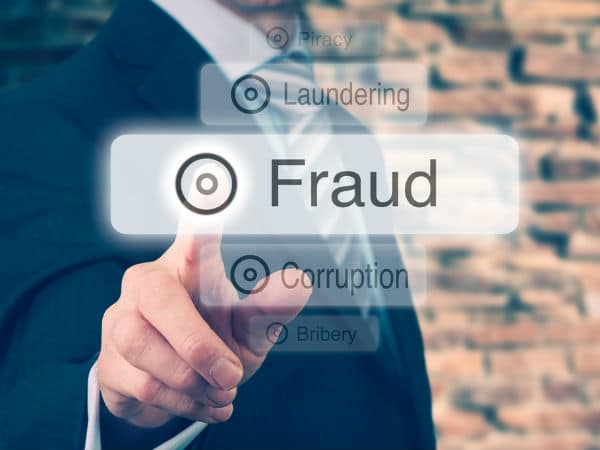Law Firms Need To Pay Attention on Emails Scam

Cyber criminals, based overseas and concentrated in Nigeria, send scam emails to law firms on a daily basis in an effort to fraudulently extract IOLTA funds and enrich themselves. Because of the increasing prevalence of these ventures, attorneys need to understand how such cons work and to protect themselves against fraud.
The scam begins with an email purportedly from a prospective client who needs legal help. The scammer, after obtaining an engagement letter, advises the law firm that the matter is going to be resolved and the adverse party will send a settlement check to the lawyer. The check quickly arrives and the lawyer will typically deposit it into the firm’s IOLTA account. The criminal then tells the law firm that they can keep their fee from the proceeds of the recently received check but should wire the difference to the scammer. The wire instructions will always be to an overseas bank, typically one in Japan. The scammers use the anonymity of the internet to create virtually untraceable email accounts, and ultimately untraceable bank accounts.
The con oftentimes originates in Nigeria. Lagos, soon to be one of the most populous cities in the world, is the unofficial capital of this fraud. In the hoax directed at law firms, the attorney is always sought for a contingency or for a very simple matter. After legal representation has been formally obtained and with a retainer agreement in place, the scammer advises that the debt or money sought from a third party will be immediately paid to the lawyer.
Importantly, the scammer requests that the attorney not contact the debtor because the client wishes to maintain a working relationship with the debtor, perhaps in a divorce scenario where the obligor is a former spouse of the client. Within days, a check (typically for several hundred thousand dollars) is delivered to the law firm and deposited in the firm’s IOLTA account. The law firm is entitled to the contingency fee, and is instructed to send the balance to the scammer. In all cases, the crook will request an immediate wire transfer to a foreign bank. From the scammer’s viewpoint, he must receive the wire payment before the law firm discovers that the check it deposited into its IOLTA account is not valid. Such fraudulent checks are difficult to identify because they are typically real checks that have been only slightly altered so as to be consistent with the fraud.
The reader may think a request for legal services from a prospective client with a suspicious email account (e.g. haydn@diesseweb.it), domiciled and traveling out of the country, with an unidentifiable foreign accent and not coming to the law office in-person, is nothing more than a laughable hoax. And yet, untold losses are caused by these schemes annually. The schemes themselves violate Section 419 of the Nigerian criminal code, and are sometimes called a “419 fraud.”
The ARDC has issued an alert – https://www.iardc.org/information/alert.html – and has provided tips to lawyers to be on the watch for this scam. Among the ARDC’s cautions:
- Wait for a check, even a cashier’s or certified check, to clear before using the money. A provisional credit, issued within a few days after the deposit, does not mean that the check is good. Verify the authenticity of the check with the issuing bank.
- Be suspicious of a client who insists that you send funds by wire transfer or otherwise pressures you to act quickly.
- Take steps to verify that the “client” is who they say they are, particularly if there are no face-to-face communications with the client. If you are dealing with a stranger, verify the person’s identity using reliable third-party sources.
- If you have deposited a check that bounces, the bank may withdraw the original amount credited and that may result in the conversion of other clients’ funds in the trust account. If your trust account does not have enough money to cover the deduction, the bank may freeze your trust account or the bank may sue you to recover the funds. See Wachovia Bank v. Bartko, No. 1:08-CV-2636 (Ga.)
Although the ARDC has provided a number of agencies that can be contacted if you receive a counterfeit check – such as the FBI, the FTC, and the U.S. Postal Service – this type of scam is one that is too common – and the size of each transaction is typically too small – for federal agencies to allocate resources to help.
The key element of the Nigerian scam is that a check is received by the law firm, but the firm is asked to wire funds out. The delay in time between the bank’s reporting the check as having (provisionally) “cleared,” and discovery of the con, provides time for the scammer to abscond with the law firm’s IOLTA funds.
In order to protect against this, each check received must be critically evaluated, and discussed with the issuing bank to determine the check’s validity.
The Nigerian scam represents a significant financial and reputational risk for law firms. Lawyers need to know their clients. Any prospective client who does not appear in person should be viewed cautiously. A law firm should be suspicious of any request by a client to wire funds, and that suspicion should rise to the level of alarm if the wire is bound for a foreign country. Any client who deposits a check should receive a check – not wired funds – from the law firm because the increased time required to send a check coupled with the increased time for the check to clear may provide protection to the law firm. The provisional clearing of the scammer’s check is meaningless because even when a check provisionally clears, the law firm is still responsible if the check later turns out to be fraudulent.
The FBI and other federal agencies have been unable to curb the Nigerian scam. The scale of the swindle has increased over time, and the methods used by the perpetrators have become more sophisticated. However, with an understanding of the basic premise of this fraud, a law firm can minimize the risk of falling victim to it and (unwittingly) contributing to Nigeria’s expanding economy.

